The Academic Symposium on Textbook Benchmarks for Teaching Islamic Philosophy
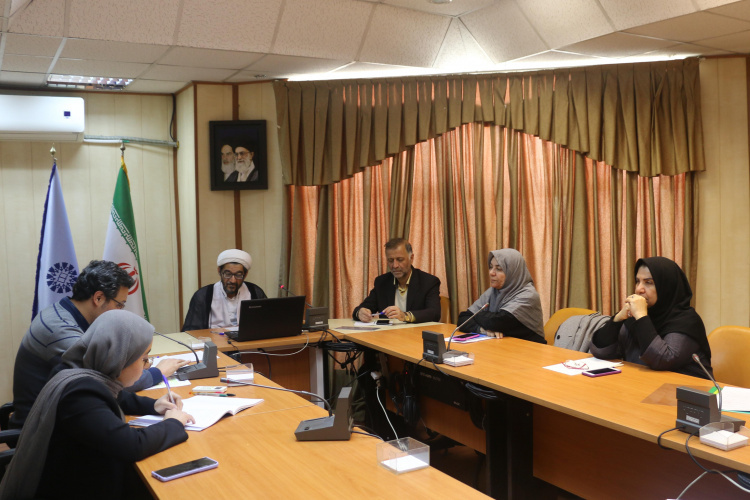
According to SAMT's Department of Public Relations, The Academic Symposium on Textbook Benchmarks for Teaching Islamic Philosophy was held by the Organization for Researching and Composing University Textbooks in the Islamic Sciences and the Humanities (SAMT), in collaboration with the Institute of Philosophy, Russian Academy of Sciences & Ibn Sina Islamic Culture Research Foundation.
At the beginning of the Symposium, Dr. Dawood Mahdavizadegan, the head of SAMT Organization, announced that this academic event is the result of SAMT delegation's visit to Russia in May 2023, organized by International Department of SAMT and in line with the expansion of SAMT's international affairs. He added: "Registration and recording of new theories is always of great importance, and this is done through textbooks." By registration and recording human academic achievements, a textbook plays an influential role in transferring them to the next generations. Precisely for this reason, the benchmark characteristics of textbooks should be identified, codified and published so that researchers can compile and categorize their scientific works based on them.
At the end of his speech, Dr. Mahdavizadegan considered the preparation and holding of such meetings as one of the important tasks of the SAMT organization and expressed hope that with the cooperation of Iranian and Russian professors and experts, worthy works will be published.
Dr. Hamid Hadavi, Head of Ibn Sina Islamic Culture Research Foundation appreciated SAMT's attempts in composing and providing academic textbooks, and said: "When we talk about Islamic philosophy in Russia, a broad range of concepts is considered, including theology, philosophy, and mysticism. Islamic Culture Research Foundation focuses on Islamic philosophy and tries to prepare the ground for academic interactions between researchers, professors and scholars of Russia and Iran by authoring and translating written works, holding online and offline courses, as well as holding academic conferences and symposiums."
Dr. Hossein Kalbasi Ashtari, director of SAMT's Philosophy Department, appreciated the efforts and philosophical researches of Russia and Iran and added: "SAMT organization, by authoring and translating more than 2,600 book titles, of which more than 100 titles are in the field of philosophy, is a good step towards the supply and preparation of teaching resources of the university has been removed." According to this faculty of Allameh Tabataba'i University, in Russia, a person like Professor Smirnov played a great role in introducing Islamic philosophy to Russian researchers. In addition, the activities of Dr. Hamid Hadavi in Ibn Sina Islamic Culture Research Foundation have also been very effective.
Dr. Yulia Fedorova, deputy to professor Smirnov, who is the head of the Department of Philosophy of Islamic World in the Institute of Philosophy of the Academy of Sciences in Russia, while congratulating the beginning of the 45th anniversary of the Islamic Revolution of Iran, introduced the members and activities of the institute. Dr. Fedorova, who is a Russian ʻAṭṭar scholar, is the translator of Manṭiq-al-Ṭiyr to Russian. Her other colleagues who were introduced were: Ilshat Nasyrov, Konstantin Burmistrov, Tatiana Korneeva, Faris Nofal, Andrey Lukashev. (See: https://eng.iphras.ru/islamphil.htm for further description about these scholars).
Ilshat Nasyrov: the author of Ibn Khaldun in Ottoman Historiography & Selected as the best book of the Institute of Philosophy of the Academy of Sciences two years ago.
Konstantin Burmistrov: Ph.D. at the Institute of Philosophy, Centre for Oriental Philosophies, specialist in Jewish philosophy.
Tatiana Korneeva: Ph.D. in Philosophy. Thesis title: «Nasir Khusraw’s philosophical views (on the material of the treatise “Gushaish va rahaish”» (Institute of Philosophy, RAS).
Faris Nofal: the author of several books on Muʻtazila and Zaydiyyah.
Andrey Lukashev: a specialist in Islamic mysticism and the author of two books introducing the thoughts and opinions of Maḥmūd Shabistarī, and translator of Sanāʼī Ġaznavī and ʻAbdul Raḥmān Jāmī. A textbook on the history of Arabic-Islamic philosophy is one of his other works. He said that in Russia, Islamic philosophy is taught based on several textbooks, regarding the history of classical Arab-Islamic philosophy, history of Eastern philosophy, Islamic culture, Iranian philosophy, Islamic theology, mysticism and Sufism, Ismailia, the philosophy of the Safavid period, as well as the philosophy of Ibn Ḫaldūn, Mīrdāmād and Ṣadr-al-Mutaʼallihīn. Dr. Andrey Lukashev, from the Islamic World Department of the Institute of Philosophy, Russian Academy of Sciences, briefly introduced the activities of the Institute, the Russian participants, and the works and resources published by the academy. He expressed hope that this meeting would be a good start to further scientific-research activities of both sides. At the end of his speech, Andrey Lukashev welcomed joint measures with SAMT in academic-research areas, and announced that it is possible to use the articles of SAMT faculty members in Ishraq: Islamic Philosophy Journal.
Dr. Maliḥe Ṣaberi, SAMT's Research Deputy and faculty member of the Department of Philosophy and Research Institute of SAMT said:
"SAMT, whose main mission is to compile academic textbooks in the field of Islamic studies and the humanities attempts to determine textbook criteria in various fields and accordingly provide academic community with standard textbooks. In general, philosophy university textbooks can be divided into four categories:
1. Books that include a complete classical text of a philosopher, taught to students from the beginning, for example, ʼIšārāt (allusions), or Šavahid (proofs), or Nahāyat (conclusion).
2. Books that include selective texts of great philosophers, as well as philosophical discussions about one or more topics.
3. Books that include theories and ideas of philosophers, formatted as a continuous history of philosophy, from the beginning of the formation of philosophy as a field of study to contemporary times. In this approach, students get to know the opinions of philosophers in a diachronic manner. In this type of textbooks, different views of philosophers and their interaction with each other is studied systematically.
4. Independent authored books written as textbooks that introduce thoughts of one philosopher or several important philosophers in a clear way, like Sadraian Wisdom, written by Dr. ʻUbūdīyat."
She added: "Each of the above categories has its shortcomings and advantages, and SAMT's Department of Philosophy is trying to pave the way for writing textbooks centered on 'critical thinking methods' and 'clear, stable and comprehensive expression' in order to meet the needs of students for textbooks in accordance with the approved syllabus."
Dr. Hamid Reza Khademi, Director of Research and Evaluation Department and faculty member of SAMT's Philosophy Department, pointed out some educational components in Avicenna's philosophy and said: "The ideas of this prominent Muslim philosopher are useful and valuable for the contemporary world. In the knowledge of contemporary educational curriculum design, educational approaches are divided into two categories: direct and indirect (heuristic) learning. In indirect education approach, the principle of activation or interactive learning is emphasized. In other words, based on the principles of modern learning, Avicenna's educational method in teaching philosophical issues is based on collaborative learning with a heuristic exploratory approach, and Avicenna's educational steps until determining the subject of philosophy is an example in this regard. Another point is Avicenna's way of revealing philosophical thinking, which is also called cognitive apprenticeship. Cognitive apprenticeship relies on scaffolding that acts exactly like its building construction counterpart: It provides a framework that allows students to gradually understand and create more complex structures themselves. Avicenna's philosophical method is based on critical thinking in philosophical issues. Critical thinking improves problem understanding. There is a difference between critical thinking and problem solving. Critical thinking is an intellectual activity to better understand the problem rather than to solve it. Another goal of critical thinking is data measurement and evaluation. For example, look at Avicenna's discussion about the fact that God (the active cause and origin of existence) is not the subject matter of philosophy. Avicenna faces a strong hypothesis that considers the subject of philosophy to be supreme, because Wājib Taʻālā (the transcendental necessity) is the essence of existence and is the highest being. Avicenna uses critical thinking in the best way to say that the existence of God in philosophy is not a given and must be proved, and philosophy is the only academic field that has the capacity to argue the existence of God. According to Avicenna's method, the ideal educational book in philosophy should be such that students not only understand philosophical issues and materials, but also learn the way of reasoning and criticizing rival theories and viewpoints.




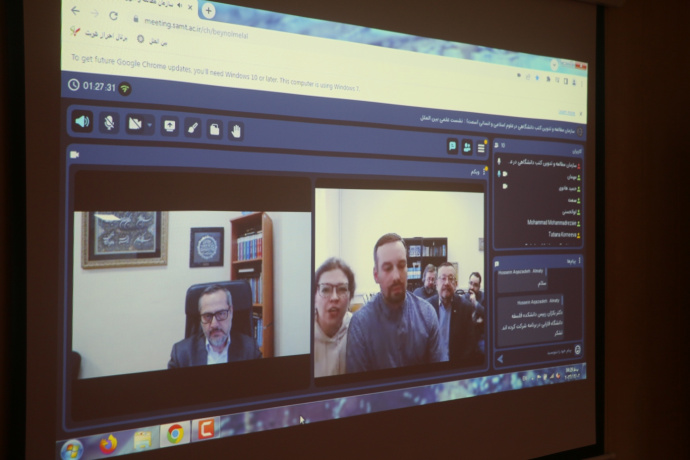
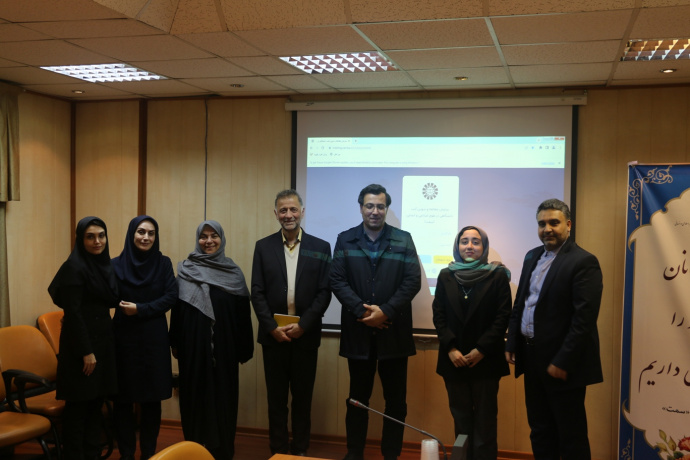
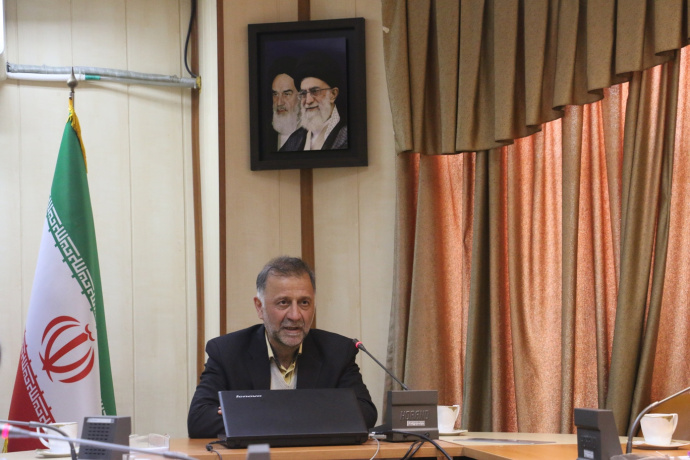
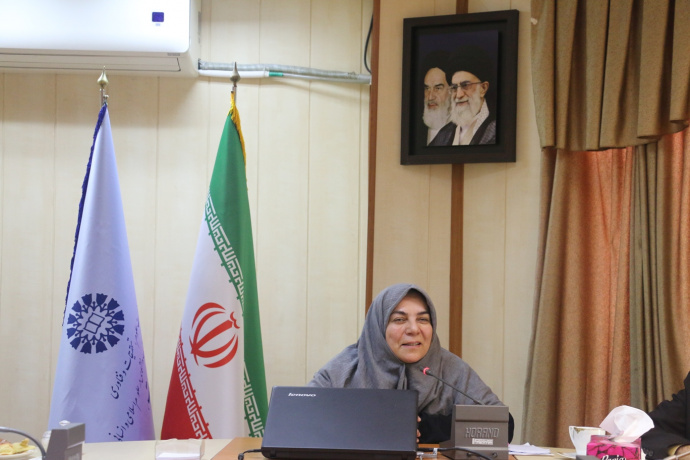




Your Comment :